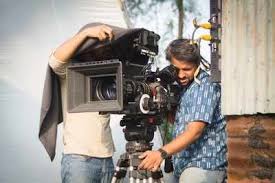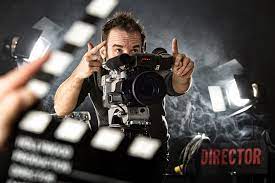Modeller (1 years diploma)
Modeller click here
Brief Job Description: Individuals at this job are responsible for creating computer
generated modellers(characters, machines, props, objects etc.) for animation under
close supervision of a senior.
Personal Attributes: This job requires the individual to create various types of
models using modelling software and tools such as Maya, 3D Studio Max etc. The
individual must also have a good understanding of the human anatomy, skeleton

structure, joints, facial muscles, expressions etc. The individual must be well-versed with the principles and techniques of 3D modelling and animation.
Description
Budget Budget is an estimate of the total cost of production that may include a
break-up of cost components
Composition Composition is the positioning of the character with respect to the
background and camera
Clean-up Refining the interim/rough animation
Creative Brief Creative brief is a document that captures the key questions that serve as
a guide for the production including the vision, objective of the project,
target audience, timelines, budgets, milestones, stakeholders etc.
Key Frame Key Frames are the key poses, usually the start and end poses for a
particular animation sequence
Modelling Modelling is the process of creating three-dimensional models for
animation using a specialised software application.
Rendering Rendering is the process of converting three-dimensional models into two dimensional images with 3D effects
Rigging Rigging is the process of adding joints to a static three-dimensional model
to aid movement during posing
Timelines Timelines is a listing of dates by which the production milestones/stages
need to be completed
Sector Sector is a conglomeration of different business operations having similar
businesses and interests. It may also be defined as a distinct subset of the
economy whose components share similar characteristics and interests.
Sub-sector Sub-sector is derived from a further breakdown based on the
characteristics and interests of its components.
Vertical Vertical may exist within a sub-sector representing different domain areas
or the client industries served by the industry.
Occupation Occupation is a set of job roles, which perform similar/related set of
functions in an industry
Function Function is an activity necessary for achieving the key purpose of the
sector, occupation, or area of work, which can be carried out by a person
or a group of persons. Functions are identified through functional analysis
and form the basis of OS.
Sub-functions Sub-functions are sub-activities essential to fulfill the achieving the
objectives of the function.
Job role Job role defines a unique set of functions that together form a unique
employment opportunity in an organization.
Occupational Standards
(OS)
OS specify the standards of performance an individual must achieve when
carrying out a function in the workplace, together with the knowledge and
understanding they need to meet that standard consistently. Occupational
Standards are applicable both in the Indian and global contexts.
Performance Criteria Performance Criteria are statements that together specify the standard of
performance required when carrying out a task
National Occupational
Standards (NOS)
NOS are Occupational Standards which apply uniquely in the Indian
context.
Qualifications Pack
Code
Qualifications Pack Code is a unique reference code that identifies a
qualifications pack
Qualifications Pack For Modeller

Keywords /Terms Description
NOS National Occupational Standard(s)
QP Qualifications Pack
NSQF National Skill Qualifications Framework
NVEQF National Vocational Education Qualifications Framework
NVQF National Vocational Qualifications Framework
Qualifications Pack(QP) Qualifications Pack comprises the set of OS, together with the educational,
training and other criteria required to perform a job role. A Qualifications
Pack is assigned a unique qualification pack code.
Unit Code Unit Code is a unique identifier for an Occupational Standard, which is
denoted by an ‘N’.
Unit Title Unit Title gives a clear overall statement about what the incumbent should
be able to do.
Description Description gives a short summary of the unit content. This would be
helpful to anyone searching on a database to verify that this is the
appropriate OS they are looking for.
Scope Scope is the set of statements specifying the range of variables that an
individual may have to deal with in carrying out the function which have a
critical impact on the quality of performance required.
Knowledge and
Understanding
Knowledge and Understanding are statements which together specify the
technical, generic, professional and organizational specific knowledge that
an individual needs in order to perform to the required standard.
Organizational Context Organizational Context includes the way the organization is structured and
how it operates, including the extent of operative knowledge managers
have of their relevant areas of responsibility.
Technical Knowledge Technical Knowledge is the specific knowledge needed to accomplish
specific designated responsibilities.
Core Skills/Generic
Skills
Core Skills or Generic Skills are a group of skills that are key to learning and
working in today’s world. These skills are typically needed in any work
environment. In the context of the OS, these include communication
related skills that are applicable to most job roles
Description
NOS National Occupational Standard(s)
QP Qualifications Pack
NSQF National Skill Qualifications Framework
NVEQF National Vocational Education Qualifications Framework
NVQF National Vocational Qualifications Framework
Interpret the script/ brief/ storyboard
Description This OS unit is about interpreting the script/ brief/ storyboard for the animation
process
Scope This unit/task covers the following:
Interpret the script/ brief/ storyboard correctly
Performance Criteria (PC) w.r.t. the Scope PeElement Performance Criteria

Interpretation of
script/ brief/
storyboard
To be competent, the user/individual on the job must be able to:
PC1. understand the script, brief and storyboard from the art director and character
designers
PC2. understand the design brief in context of his/her job (appearance, complexion,
dressing, moods, personalities, expressions etc.)
PC3. understand the requirements (number, types, duplicates etc.)
PC4. understand the specifications (dimensions, operating parameters etc.)
PC5. understand the technical needs of the project relevant to his/ her job role
(television, film, gaming, internet, dvd etc.)
PC6. be aware and responsible of his/her role in the pre-production, production and
post-production process
Knowledge and Understanding (K)
A. Organizational
Context
(Knowledge of the
company /
organization and
its processes)
The user/individual on the job needs to know and understand:
KA1. the creative vision and elements of production relevant to his/her job role
KA2. the project pipeline/schedule and timelines relevant to their work
KA3. the intended purpose/ end-use of the models that need to be created
B. Technical
Knowledge
The user/individual on the job needs to know and understand:
KB1. principles of animation
KB2. human anatomy, skeleton structure, joints, facial muscles etc.
KB3. human mannerisms, emotions, behavior, facial expressions etc.
KB4. techniques and workflow
KB5. drawing and illustration techniques
KB6. how to prepare an output that is consistent with the creative look of the
production and in accordance to the script and design brief
KB7. the sources for research and reference material
KB8. applicable copyright norms and intellectual property rights
KB9. applicable health and safety guidelines
Skills (S) (Optional)
A. Core Skills/
Generic Skills
Writing Skills
The user/individual on the job needs to know and understand how to:
SA1. document notes while understanding the brief, requirements and
specifications from the art director and character designers to refer to
during the production process
Reading Skills
The user/individual on the job needs to know and understand how to:
SA2. read and understand the design brief and character pack
SA3. research links, videos, artwork etc. that can be used as references
Oral Communication (Listening and Speaking skills)
The user/individual on the job needs to know and understand how to:
SA4. Understand the design brief and requirements from the Art Director and
character designers
B. Professional Skills Plan and Organize
The user/individual on the job needs to know and understand how to:
SB1. breakup the tasks required and estimate the time required for each task, so as
to manage own work in assigned time schedule
Problem Solving
The user/individual on the job needs to know and understand how to:
SB2. identify any creative problems that may arise during the production and work
back with the art director and character designers to find suitable solutions to
address them
SB3. handle technical issues such as pipeline concerns, optimizing efficiency of
assets and asset integration in collaboration with peers and under supervision
of the art director
Decision making
The user/individual on the job needs to know and understand how to:
SB4. make decisions related to the way the script will be represented visually
Analytical Thinking
The user/individual on the job needs to know and understand how to:
SB5. have a keen eye for detail and maintain an aesthetic sense towards the final
output
Critical Thinking
The user/individual on the job needs to know and understand how to:
SB6. appraise the quality of the references gathered (storyboard/character turn
around/pose sheet/facial expressions/etc) to ensure it is in line with the initial
concept and quality standards

Customer Centricity
The user/individual on the job needs to know and understand how to:
SB7. check that the references/interpretations meets customer requirements
Prepare computer generated models
Description This OS unit is about creating computer generated models for the animation process
Scope This unit/task covers the following:
Preparation of computer generated 3D models, including characters machines,
sets and props, game modeling, objects, locations/ background elements such
as environment, architecture, landscapes, interiors and blend shapes
Performance Criteria (PC) w.r.t. the Scope
Element Performance Criteria
Preparation of
computer generated
3D models
To be competent, the user/individual on the job must be able to:
PC1. prepare digital models according to the design brief, requirements,
specifications and technical needs of the project specified by the art director/
character designers
PC2. create prototypes/pilots for testing
PC3. understand the final display medium and adapt / suggest the model for its
polycounts, mesh complexity, movement capability etc. under supervision of
the art director and character designers
PC4. ensure that the models will be able to perform properly once animated, are
uniform and consistent and are delivered in appropriate formats that can be
used by others
Knowledge and Understanding (K)
B. Organizational
Context
(Knowledge of the
company /
organization and
its processes)
The user/individual on the job needs to know and understand:
KA1. the creative vision and elements of production relevant to his/her job role
KA2. the pipeline/schedule and timelines relevant to their work
KA3. the intended purpose/ end-use of the models that need to be created
B. Technical Knowledge
The user/individual on the job needs to know and understand:
KB1. principles of 3d modeling and animation including concepts like polygons,
nurbs, and sub surface modeling etc.
KB2. human anatomy, skeleton structure, joints, facial muscles etc.
KB3. human mannerisms, emotions, behavior, facial expressions etc.
KB4. basics of rigging to help build models with the minimum necessary spline,
nurbs and polygons
KB5. techniques and workflow of uv mapping
KB6. principles of engineering
KB7. physics of motion, resistance and volume
KB8. form, scale and proportion of various models
KB9. the techniques of sculpting (added advantage)
KB10. drawing and illustration techniques
KB11. how to create various types of models (organic, non-organic, simple, complex)
KB12. how to use modelling software and tools such as Maya, 3D Studio Max,
Blender, Mud-Box, Zbrush, Mari etc.
KB13. how to design and develop models consistent with the creative look of the
production and in accordance to the script and design brief
KB14. how to build models with the necessary detailing and as per the camera
distance
KB15. the sources for research and reference material
KB16. how to design models to suit the final use. e.g. a model created for feature
films is different from model created for television series and it is further
different from model created for a game or e-learning module
KB17. how to test models (through the basic phonemes test, basic expression test,
simulation tests, grayscale turnarounds) to ensure that they meet the design
specification and production requirements
KB18. how to test characters, props and environments to ensure they appear
correctly from all required camera positions and angles
KB19. how to optimise mesh as per production requirements
KB20. applicable copyright norms and intellectual property rights
KB21. applicable health and safety guidelines
Skills (S) (Optional)
C. Core Skills/
Generic Skills
Writing Skills
The user/individual on the job needs to know and understand how to:
SA1. document notes /draw illustrations to assist during the modelling process
Reading Skills
The user/individual on the job needs to know and understand how to:
SA2. read and understand the design brief and character pack
SA3. research links, videos, artwork etc. that can be used as references during the
modelling process
Oral Communication (Listening and Speaking skills)
The user/individual on the job needs to know and understand how to:
SA4. understand the design brief and requirements from the art director and
character designers
SA5. present the final character models to the Art Director and solicit feedback
D. Professional Skills Plan and Organize
The user/individual on the job needs to know and understand how to:
SB1. breakup the tasks required and estimate the time required for each task, so as
to manage own work in assigned time schedule
Problem Solving
The user/individual on the job needs to know and understand how to:
SB2. handle technical issues such as pipeline concerns, optimizing efficiency of
assets and asset integration in collaboration with peers and under supervision
of the art director
Analytical Thinking
The user/individual on the job needs to know and understand how to:
SB3. have a keen eye for detail and maintain an aesthetic sense towards colour
Shapes, forms and software capabilities of the final output
Critical Thinking
The user/individual on the job needs to know and understand how to:
SB4. identify any creative problems that may arise during the production and work
back with the art director and character designers to find suitable solutions to
address them
Prepare computer generated models
Decision making
The user/individual on the job needs to know and understand how to:
SB5. manage creative decisions as per the client inputs while producing 3D models
Customer Centricity
The user/individual on the job needs to know and understand how to:
SB6. manage deadlines and revert on corrections or rework as per the client inputs
while producing 3D models
Test computer generated models
Description This OS unit is about testing computer generated models to ensure that they conform
to specifications and requirements
Scope This unit/task covers the following:
Testing the models
Performance Criteria (PC) w.r.t. the Scope
Element Performance Criteria
Testing the models To be competent, the user/individual on the job must be able to:
PC1. test the models to ensure that they meet the design specifications and
production requirements and function as required
PC2. work out any problems with the models that emerge during production or
construction in collaboration with peers and under supervision of the art
director and character designers
PC3. review models with relevant people
PC4. respond positively to feedback about the models created, making refinements
as needed
PC5. remain constantly flexible and adaptable to new directions, creative
requirements and developments in model making
Knowledge and Understanding (K)
C. Organizational
Context
(Knowledge of the
company /
organization and
its processes)
The user/individual on the job needs to know and understand:
KA1. the creative vision and elements of production relevant to his/her job role
KA2. the pipeline/schedule and timelines relevant to their work
KA3. the intended purpose/ end-use of the models that need to be created
B. Technical
Knowledge
The user/individual on the job needs to know and understand:
KB1. principles of 3d modeling and animation including concepts like polygons,
nurbs, and sub surface modeling etc.
KB2. human anatomy, skeleton structure, joints, facial muscles etc.
KB3. human mannerisms, emotions, behavior, facial expressions etc.
KB4. basics of rigging to help build models with the minimum necessary spline,
nurbs and polygons
KB5. techniques and workflow of uv mapping
KB6. principles of engineering
KB7. physics of motion, resistance and volume
KB8. form, scale and proportion of various models
KB9. the techniques of sculpting (added advantage)
KB10. drawing and illustration techniques
KB11. how to create various types of models (organic, non-organic, simple, complex)
KB12. how to use modelling software and tools such as Maya, 3D Studio Max,
Blender, Mud-Box, Zbrush, Mari etc.
KB13. how to design and develop models consistent with the creative look of the
production and in accordance to the script and design brief
KB14. how to build models with the necessary detailing and as per the camera
distance
KB15. the sources for research and reference material
KB16. how to design models to suit the final use. e.g. a model created for feature
films is different from model created for television series and it is further
different from model created for a game or e-learning module
KB17. how to test models (through the basic phonemes test, basic expression test,
simulation tests, grayscale turnarounds) to ensure that they meet the design
specification and production requirements
KB18. how to test characters, props and environments to ensure they appear
correctly from all required camera positions and angles
KB19. how to optimise mesh as per production requirements
KB20. applicable copyright norms and intellectual property rights
KB21. applicable health and safety guidelines
Skills (S) (Optional)
E. Core Skills/
Generic Skills
Writing Skills
The user/individual on the job needs to know and understand how to:
SA1. document notes /draw illustrations to assist during the modelling process
Reading Skills
The user/individual on the job needs to know and understand how to:
SA2. read and understand the design brief and character pack
SA3. research links, videos, artwork etc. that can be used as references during the
modelling process
Oral Communication (Listening and Speaking skills)
The user/individual on the job needs to know and understand how to:
SA4. understand the design brief and requirements from the art director and
character designers
SA5. present the final character models to the Art Director and solicit feedback
F. Professional Skills Plan and Organize
The user/individual on the job needs to know and understand how to:
SB1. breakup the tasks required and estimate the time required for each task, so as
to manage own work in assigned time schedule
Problem Solving
The user/individual on the job needs to know and understand how to:
SB2. identify any creative problems that may arise during the production and work
back with the art director and character designers to find suitable solutions to
address them
SB3. handle technical issues such as pipeline concerns, optimizing efficiency of
assets and asset integration in collaboration with peers and under supervision
of the art director
Decision making
The user/individual on the job needs to know and understand how to:
SB4. manage creative decisions as per the client inputs while testing models for
texturing/rigging/facial expressions/animation
Customer Centricity
The user/individual on the job needs to know and understand how to:
SB5. prioritize work according to the requirements of texturing/rigging/facial
/animation departemnts
Analytical Thinking
The user/individual on the job needs to know and understand how to:
SB6. have a keen eye for detail and maintain an aesthetic sense towards Shapes and
software capabilities of the final output
Critical Thinking
The user/individual on the job needs to know and understand how to:
SB7. improve work-products and performance based on feedback received and
through self-appraisal
Maintain workplace health and safety
Description This OS unit is about contributing towards maintaining a healthy, safe and secure
working environment
Scope This unit/task covers the following:
Understanding the health, safety and security risks prevalent in the workplace
Knowing the people responsible for health and safety and the resources available
Identifying and reporting risks
Complying with procedures in the event of an emergency
Performance Criteria (PC) w.r.t. the Scope
Element Performance Criteria
Understanding the
risks prevalent in the
workplace
To be competent, the user/individual on the job must be able to:
PC1. understand and comply with the organisation’s current health, safety and
security policies and procedures
PC2. understand the safe working practices pertaining to own occupation
PC3. understand the government norms and policies relating to health and safety
including emergency procedures for illness, accidents, fires or others which
may involve evacuation of the premises
PC4. participate in organization health and safety knowledge sessions and drills
Knowing the people
responsible for health
and safety and the
resources available
PC5. identify the people responsible for health and safety in the workplace,
including those to contact in case of an emergency
PC6. identify security signals e.g. fire alarms and places such as staircases, fire
warden stations, first aid and medical rooms
Identifying and
reporting risks
PC7. identify aspects of your workplace that could cause potential risk to own and
others health and safety
PC8. ensure own personal health and safety, and that of others in the workplace
though precautionary measures
PC9. identify and recommend opportunities for improving health, safety, and
security to the designated person
PC10. report any hazards outside the individual’s authority to the relevant person in
line with organisational procedures and warn other people who may be
affected
Complying with
procedures in the
event of an
emergency
PC11. follow organisation’s emergency procedures for accidents, fires or any other
natural calamity in case of a hazard
PC12. identify and correct risks like illness, accidents, fires or any other natural
calamity safely and within the limits of individual’s authority
Knowledge and Understanding (K)
A. Organizational
Context
(Knowledge of the
company /
organization and
its processes)
The user/individual on the job needs to know and understand:
KA1. organisation’s norms and policies relating to health and safety
KA2. government norms and policies regarding health and safety and related
emergency procedures
KA3. limits of authority while dealing with risks/ hazards
KA4. the importance of maintaining high standards of health and safety at a
workplace







